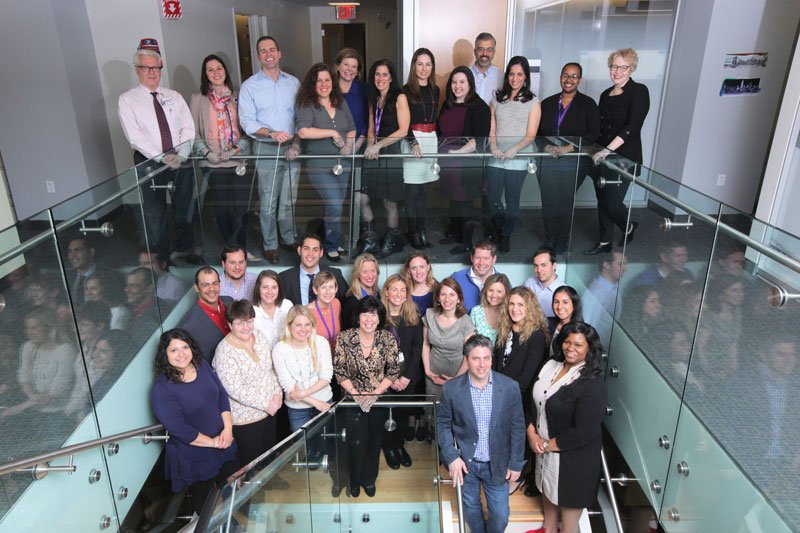
NYU Langone Medical Center is one of the nation’s premier academic medical centers. Our trifold mission to serve, teach, and discover is achieved daily through an integrated academic culture devoted to excellence in patient care, education, and research. Hassenfeld Children’s Hospital at NYU Langone provides comprehensive children's health services across NYU Langone
In 2013, NYU Langone Medical Center established the Sala Institute for Child and Family Centered Care with a two-prong vision: to create an enduring, broad, and flexible patient and family-centered culture that will set the agenda for best serving children at Hassenfeld Children’s Hospital of NYU Langone Medical Center (HCH NYU) and to inspire new national standards and models for patient and family-centered care that integrate a strength based model of resilience, patient safety and quality, research and education all of which are developed using models of co-design with patients and families as partners.
At Hassenfeld Children’s Hospital children and families are supported as partners with healthcare professionals in all aspects of care delivery. Their perspectives are essential in providing safe, effective, family-centered care. Through the Family Advisory Council and Youth Advisory Council, 30 plus trained patient and family advisors play an active role in providing recommendations that guide our programs and services. In addition to partnering with advisors on councils, there is a team of paid, part-time Senior Family Advisors who receive advance training and partner with teams on safety, quality, research and operational initiatives.
As a Project Site for Creating Capacity for Sustainable Partnerships with Patients and Families in Research, we had the opportunity to further advance our work in partnering with families in the co-design and implementation of research. As part of this grant we used a quality improvement framework to build and test tools for partnership in research. These tools have been integrated within the Department of Pediatrics and the Department of Population Health.
The framework and tools co-designed by family advisors and clinicians include the following:
Key Driver Diagram: a visual roadmap including a specific aim of improvement, key drivers that influence the aim and related interventions. This key driver diagram is designed to strengthen the partnership between patients, families, and researchers, establish priorities and build capacity to partner with researchers on research design and implementation.
Mirror Image Tool: a checklist to prepare patients, families and research partners. This tool provides tips to support partnership and accountability for researchers to establish best practices in patient and family advisor engagement.
Presentation: provides an overview of this work with examples of the impact of partnership on research and quality improvement projects.
Team members included:
- Fiona H. Levy, MD Executive Director, Sala Institute for Child and Family Centered Care
- Beth Silber, MPA, Family Consultant, Chair of Family Advisory Council
- Senior Family Advisors
- Patient and Family Advisory Council
- Youth Advisory Council